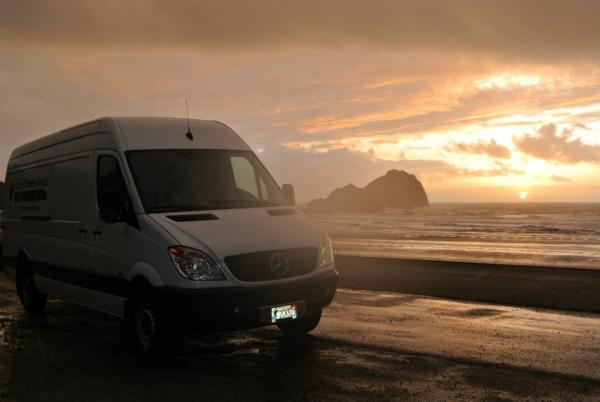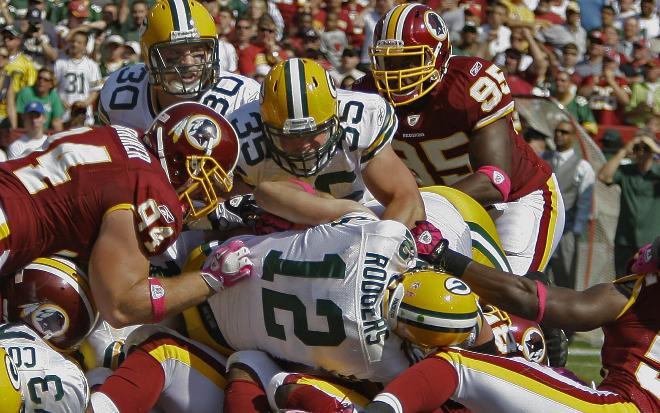If you listen closely, you can hear Dan Cornelius singing his favorite Willie Nelson theme song—“I’m on the road again…”—as his Mobile Farmers Market vehicle heads down the highway.
Cornelius, of Wisconsin’s Oneida Nation, is general manager of a three-month-long, 10,000-mile foodie road show designed to showcase Native American foods in conjunction with a reconnection of tribal trade routes. “A lot of native communities are remote, literally food deserts, and don’t have good access to healthy traditional fresh foods. Part of our mission is to access food resources, take those great products and distribute them as part of a tribal trade reintroduction,” he says.
“There’s a lot of product that is traditionally grown, harvested and processed—lots of time and labor that goes into that—but the traditional foods aren’t made available to the general public as a sustainable economic resource.”
The interest is there, but the connection still needs to be made. “It’s about health issues, maintaining our traditions, and turning the effort into a form of economic development by selling excess product for profit.”

The Mobile Farmers Market traveled across the country earlier this year as part of the Intertribal Agriculture Council‘s efforts to improve Indian agriculture by promoting Indian use of Indian resources. “Prior to our founding in 1987, American Indian agriculture was basically unheard of outside reservation boundaries,” notes the group’s web page.
”The Mobile Farmers Market utilized a large capacity fuel-efficient cargo van to transport a number of products across a region, all the while providing support to start farmers markets in interested tribal communities,” says Market Manager Bruce Savage. The vans’ insulated interior lining ensured correct temperature control, and a chest freezer allowed for transport of frozen goods.
“For a variety of reasons, traditional native products are frequently difficult to obtain, and the Mobile Farmers Market hoped to change that by making things more accessible to tribal communities,” says Cornelius. In the Pacific Northwest, canned and smoked salmon were frequently obtainable items while the Southwest offered up cactus buds and syrup. The Great Plains provided a prairie-grown protein-packed wild turnip. In the Great Lakes region it was sumac berries. “Soak them in water, add honey or syrup, and you get a tea-like lemonade that you won’t find commercially,” Cornelius says.

Success of the project was contingent on cultivating supportive relationships with local partners and that part of the plan came together nicely, very reminiscent of the early trade and barter days.
“Trade routes once connected regional tribes across the continent where different local areas produced unique resources,” says Cornelius. “As an example, the Objiwe exchanged meat and fish for corn from the Huadenosaunee in the Northeast. And, of course, the Three Sisters combination of corn/beans/squash gradually moved from South and Central America throughout all of the North American Continent. “
The Reconnecting the Tribal Trade Routes Roadtrip got underway in December 2013 by first picking up wild rice, maple syrup, and other products in Minnesota before heading off to Wisconsin, Louisiana, Oklahoma, New Mexico, Arizona, and the West Coast and finally heading home to Minnesota earlier this year via Montana and the Dakotas.

As Cornelius and crew bought and sold the wares of North America’s indigenous communities, the grocery list grew to include tepary beans from the Tohono O’odham people to chocolate produced by the Chickasaw Nation.
The mobile van discovered a gold mine at Ramona Farms in Sacaton, Arizona, on the Gila River Indian Reservation. Ramona and Terry Button have been growing crops for small ethnic grocers on the reservation for over 40 years and still have plenty to share with the outside world, everything from Southwestern staples like garbanzo and Anasazi beans to white Sonoran and Pima club wheat as well as alfalfa and cotton.
“Part of our mission was to build an awareness and an excitement of all the things available ‘out there’ and we succeeded,” Cornelius says. “One of the great things about our initial effort (discussions are currently underway to find funding for more vans and an increased regional visability) was the ground level opportunity to talk with community growers face-to-face discussing products, challenges, and opportunities to introduce traditional items to a larger world.”

Read more at http://indiancountrytodaymedianetwork.com/2014/08/11/traveling-grocery-road-again-156130




